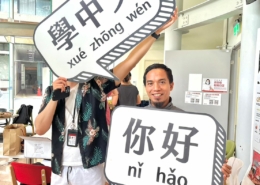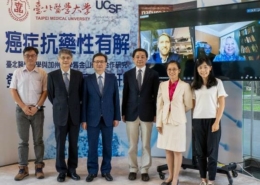Penn State partnership evolves from friendship to multiple programs
Dual degrees, neuroscience cooperation and summer exchanges blossom
Penn State’s MPH (Master of Public Health) program director Dr. Wenke Hwang and Associate Director Ms. Carol LaRegina, visited TMU in November.
TMU has partnered with America’s famous Pennsylvania State University in several areas, including signing agreements for neuroscience collaboration and nearly finalizing plans for an exciting joint degree program.
The architects of this cooperation from Penn State’s College of Medicine and its Public Health master’s degree program recently visited TMU to share two lectures and to finalize the dual degree program and discuss the two-way summer exchange programs for medical, pharmacy and public health students.
The exchanges are now enrolling their third annual cycle of participants, but the partnership might be traced back more than eight times that long, to Dr. Wenke Hwang’s friendship at Johns Hopkins University with Dr. Nai-Wen Kuo, a TMU public health scholar who would later become dean of College of Public Health.
Twenty-five years later, this personal link has borne fruit not only with students going both directions, but also common research interests. Dr. Hwang lectured in November on “Quality of Care Measurement as a System Improvement Tool” and joined a health policy class to talk about “Multi-site Electronic Health Records Research and Human Subject Protection.”
The partnership has grown since 2012, supported by a Penn State institutional travel scholarships for Dr. Hwang to visit TMU. “TMU has quite a few attractions,” Dr. Hwang said. “It has vibrant leadership and has followed up with a lot of interest. A lot of partnerships don’t result in much, but this one sort of clicked.” He credits former President Yun Yen with showing that the partnership was a high institutional priority, “so I knew this was the right direction.”
‘Your students are excellent’
Because Penn State’s MPH program is an important supporter of the exchanges, the program’s Associate Director Carol LaRegina made her first trip to Taiwan in November to discuss the joint dual degree program, which with only one year of study abroad is expected to offer both US and Taiwan diplomas.
She said she found Taiwan’s academic climate “very interesting, and your [TMU] students are excellent. We’re very excited about this partnership.”
Dr. Hwang concurred: “Enthusiasm is the right word to describe this collaboration.” He had briefed last summer’s six Penn State students as they prepared for their research in Taiwan, and said, “Before they come here, we tell them to study TMU, so we can make use of experts here that share an interest in their topics. That way they can take advantage of this opportunity.”
TMU has sent two to three students per summer so far to the Global Health Exchange Program (GHEP) at Penn State, where they participate in an intense schedule including meetings with state lawmakers and health officials, a community volunteer opportunity, and presentations where they exchange with Penn State public health students. The students usually take a weekend to see New York, and they visit Washington D.C. to meet with national legislators on a field trip from the Hershey campus.
Ms. LaRegina said that a Penn State student service group offers hospitality with a picnic, party or barbecue, and that other students come from around the world to join the group; previous year’s team included students from the Netherlands, Georgia and China. Penn State students can participate in GHEP as well and receive three credits.
Competitive advantage
As for the inbound students who come to TMU, Ms. LaRegina said that their master’s students must focus to finish in two years, so there’s less time especially for second-year students to write up their Taiwan research for publication, although they do participate in a shared blog and by journaling. One student’s essay about her Taiwan experience landed her the very competitive paid position of two years as a legislative research fellow – a nice graduation present indeed.
Meanwhile, two medical students are finishing another professional journal article based on their TMU research with Taiwan co-authors, with one paper already published two months after they left Taipei. Ms. LaRegina notes that this was only possible because the TMU faculty member supported these students in research methodologies and statistical analysis, an ambitious summer project on top of the research itself.
The proposed joint degree program is moving forward, with enrollment planned to begin in 2019 at TMU and the first group of TMU students arriving Penn State in 2020. According to the proposal, medical and pharmacy doctor students at TMU will take required additional public health courses at their home institution before arriving Penn State for another year of full-time study. After completing the requirements from both the TMU and Penn State, students will receive two credentials. The Penn State team noted presents a cost savings of about half over pursuing the two degrees separately, as well as the greater career mobility of graduate degrees from two nations.
Dr. Hwang described the partnership as “a deliberate progress” from the Memorandum of Understanding to the joint degree talks and summer exchanges. In 2013 and 2014, a neuroscience team signed an agreement for collaboration in that area, and in fact a Penn State neurosurgeon recently spent a month working on the brain injury registry lead by TMU’s former President Wen-Ta Chiu, who was Taiwan’s Minister of Health from 2011 to 2015.
With the exchanges enrolling for next summer and the joint degree program expected to open for applications next fall, TMU’s Penn State connection has blossomed from an enduring friendship to changing lives for the better.
For interviews or a copy of the paper, contact Office of Global Engagement via global.initiatives@tmu.edu.tw.

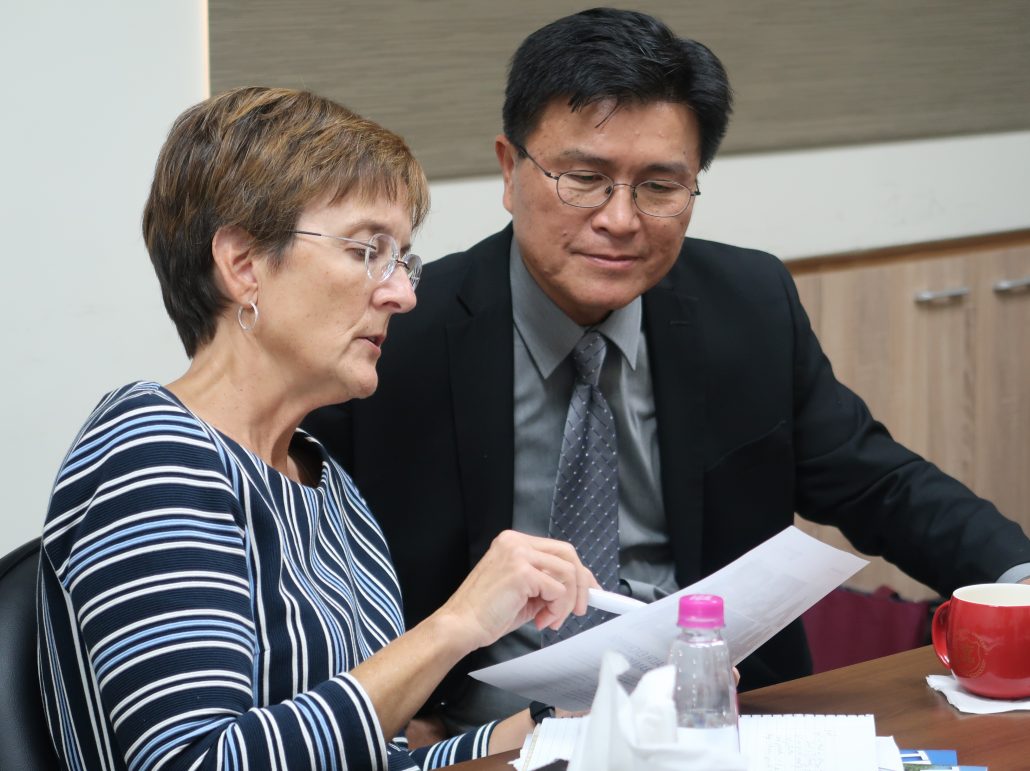
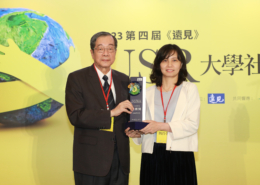

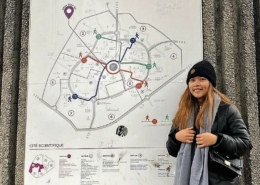

期許永續發展成為醫療產業新契機。-260x185.jpg)

